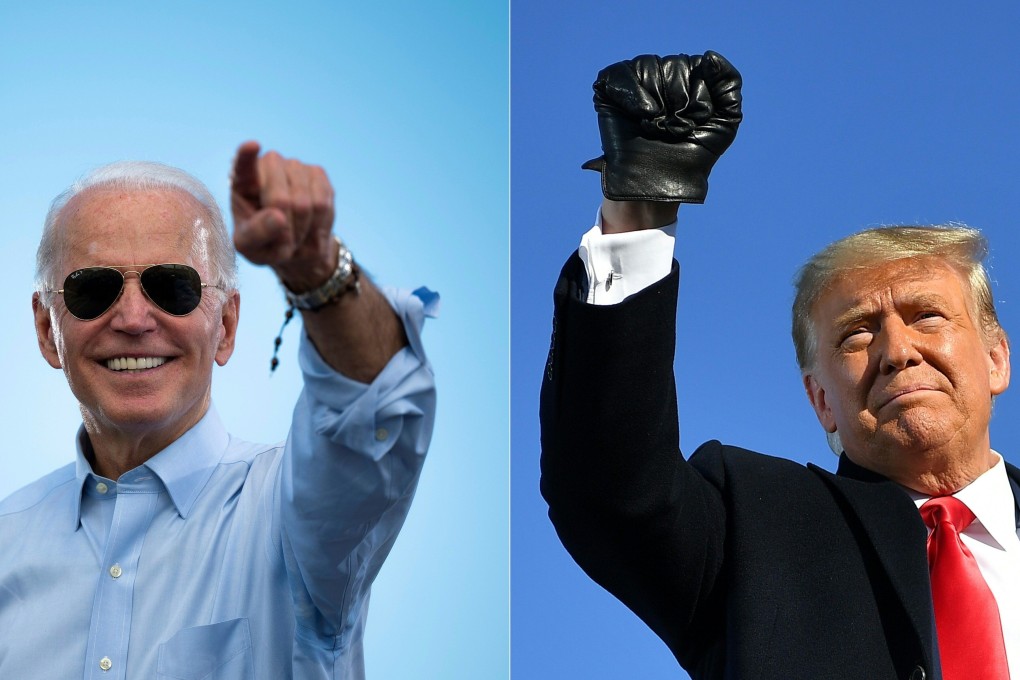Advertisement
US election: Africa expecting more of the same whoever wins
- Neither Donald Trump nor Joe Biden is expected to prioritise ties with the continent, political analyst says
- And in Zimbabwe that means there is unlikely to be a lifting of sanctions any time soon
Reading Time:3 minutes
Why you can trust SCMP

Whether Donald Trump gets re-elected or Joe Biden becomes the 46th president of the United States is unlikely to mean much for most African countries, analysts say.
In Zimbabwe, many citizens attribute their economic troubles to the sanctions imposed by the US on the southern African country because of former president Robert Mugabe’s human rights abuses and policy of seizing land from white farmers.
In the two decades since then, China has been bankrolling Harare and pushing for the sanctions to be lifted to help heal its economy, which is forecast to contract by 10.4 per cent this year, according to the International Monetary Fund.
Advertisement
David Tinashe Hofisi, a human rights lawyer and political analyst in Zimbabwe, said Trump was not looking to resolve the US relationship with Zimbabwe, and Biden would be wary of being seen to be “cosying up to a dictator”, an accusation he levelled at Trump.
“If Biden wins, he will seek to restore and strengthen ties with traditional allies and not perceived pariahs like the regime in Harare,” Hofisi said.
Advertisement
Advertisement
Select Voice
Select Speed
1.00x